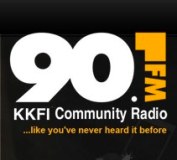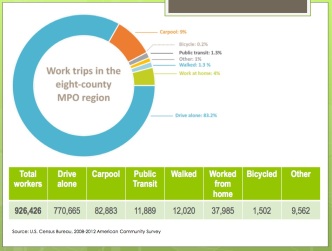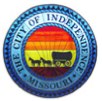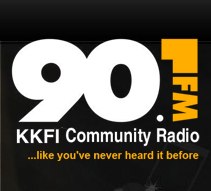 Transit Action Network discusses the Missouri 10-year 3/4 percent Amendment 7 Transportation Sales Tax on KKFI 90.1 FM Community Radio with public policy specialist and transit advocate Sheila Styron of the Whole Person, Linda Smith, President of the League of Women Voters and David Kingsley, retired statistics professor from the department of health policy & management at Kansas University Medical Center.
Transit Action Network discusses the Missouri 10-year 3/4 percent Amendment 7 Transportation Sales Tax on KKFI 90.1 FM Community Radio with public policy specialist and transit advocate Sheila Styron of the Whole Person, Linda Smith, President of the League of Women Voters and David Kingsley, retired statistics professor from the department of health policy & management at Kansas University Medical Center.
When Tuesday, July 22 at 6 pm
Where: KKFI 90.1 FM Community Radio, Radio Active Magazine (They also stream live) KKFI.org
Podcast of show: http://content.blubrry.com/kkfi901fm/RadioActive_Magazine_2014-07-22.mp3 (Correction: The widening of Interstate 70 across Missouri remains the most expensive item in the project list. It would receive $500 million (not $500,000) from this tax, with the rest of the $1.5 billion cost coming from existing revenue sources.
HJR 68 Full text of bill, which is both a sales and use tax increase and on the Aug 5th ballot. HJR68
Not all taxes are created equal. The idea that we should pay for roads based on how much we shop rather than how much we drive is a radical change on how we pay for roads and bridges. Find out why you should Vote No on this state sales tax for transportation.
Anyone wondering why this sales tax is a constitutional amendment needs to understand that the state is really trying to change the way we pay for road work, by pushing the tax burden onto middle and low-income individuals, working families and seniors, instead of the main users of roads, the trucking industry. Currently Section 30 of the Missouri Constitution states clearly that transportation projects are to be paid for with gas taxes, sales taxes on vehicle purchases, and vehicle license fees.
Why don’t we raise the fuel taxes since Missouri has had this level since 1996?

Changing to a sales tax gives the trucking industry a free ride even though they use the roads the most and do the most damage. Trucking corporations don’t even pay a sales tax when they purchase a truck in Missouri since they have an exemption. In addition, the heavy construction industry has lobbied heavily for this bill since it would continue the unprecedented amount of roadwork MoDOT has been doing using federal stimulus money.
This is the largest tax increase in Missouri history, $6.1 billion dollars, and the Missouri sales tax will rise 18% from 4.225% to 4.975%. Total state and local taxes will be over 11% in many places. This combined rate is already 14th highest in the nation and this increase will put us 9th in the nation (ahead of Illinois and just behind New York and California).
We agree with Governor Nixon in our opposition to this bill and “on the need for a robust discussion about Missouri’s long-term transportation infrastructure needs.” Governor’s position https://governor.mo.gov/news/archive/gov-nixon-issues-statement-transportation-tax
Missourians for Better Transportation Solutions, www.votenoamendment7.com, which we joined for this effort, along with over 40 groups and individuals, put together a list of reasons to vote against the bill.
Reasons to Vote No On Amendment 7
Summary from this document
- The tax unfair – Trucking Industry gets a free ride
- The tax is excessive – largest increase in our history
- This is the wrong investment for Missouri – The recent binge in highway construction hasn’t created significant economic development
- Amendment 7 is bad for Missouri Investment – total combined sales tax will be above 10% many places creating further incentive for internet purchases and a lost of revenue for local businesses.
One reason to be against Amendment 7 we rarely see mentioned is how bad it is for cities and counties. Although the state has multiple taxing methods it can use to pay for needs, cities don’t, and adding a ¾ percent sales tax from Missouri cripples the ability of local governments to raise sales taxes for local needs, like police and fire departments. In fact, politicians and planning agencies all over the state rejected this idea of a sales tax for roads earlier this year, when lobbied to support an initiative petition to do this same thing. After being rejected statewide, the lobbyists convinced our elected officials in Jeff City to put this sales tax on the ballot anyway.
Good articles explaining why you should VOTE NO ON 7
Terry Garney ‘s article in the Columbia Daily Tribune addresses the “radical departure from the way Missouri pays for roads.”
“ The amendment would make Missouri’s average combined state and local sales tax rates among the highest in the nation, exceeding 11 percent in some areas. The statewide average would be ninth-highest in the nation.” http://bit.ly/1qt5oeY
***
Jim Fitzpatrick in Kansas City has published two insightful blogs about the campaign http://bit.ly/1qwrqxt and http://bit.ly/1mhAduT
“This time, I’m sorry to say, Freedom Inc. sold out to the Heavy Constructors, commonly called “the heavies.” They’re called that for more than the obvious contraction of their name. They bring a lot of political pressure to bear in any number of places, including the Missouri General Assembly, which voted to put Amendment 7 on the ballot.”
“That (gas) tax has stood at 17 cents a gallon – sixth lowest in the nation as of last year — since 1996, or almost 20 years. If the Missouri General Assembly and the “concrete cartel” (essentially, the heavy constructors, the engineering companies and the materials suppliers) want to raise more money for transportation needs, they should come back to us with a proposal to raise the gas tax.”
***
The Show-Me Institute has written an op-ed about why they are against Amendment 7. The Southeast Missourian ran a version of it http://bit.ly/UkMyHO. Someone remarked that it is rare when Governor Nixon and the Show-Me Institute agree on something.
“Anticipating the funding bonanza, local governments around the state have put forward wish lists that would tap into sales tax money. Rather than confining themselves to critical transportation needs, cities and counties put forward lists filled with expensive wants.”
“Paying for highways based on how much people shop, and not how much they drive, creates a free-rider problem. It promotes congestion, road degradation, and sprawl. It also is fundamentally unfair to force occasional drivers to pay as much or more for new roads as interstate trucking companies.”
***
Good Roads MO (http://www.goodroadsformo.org/) continues to have good information on their website.
“This new tax would again divert sales taxes to rural areas while most of the taxes are paid by urban Missourians. The distribution of the tax to local governments is heavily weighted based on rural land value.
“Missouri’s combined state and local sales tax rates are already the 14th highest in the country. Should Amendment 7 be approved, Missouri will have the 9th highest sales tax rate in the nation (ahead of states like Illinois, just behind states like New York and California). ”
***
Transit Action Network supports well-maintained and safe roads and bridges, good transit and bike and pedestrian facilities, but we reject paying for them with a huge sales tax increase. Not only is a sales tax the WRONG Tax for paying for roads and bridges but are all of the projects really needed?
Just because MoDOT and regional planners had a feeding frenzy piling on projects, doesn’t mean all the projects are needed or should be paid for at the state level. For instance, vehicle traffic on I-70 is down 9% from its peak in 2005-2006. Do we really need to subsidize the trucking industry so they can have 6 lanes across rural Missouri? Afterall, the trucking industry will pay next to nothing for all this roadwork if we pass this sales tax. Instead the tax burden will fall on middle and lowe-income individuals.
Although we can’t speak for the project lists from the rest of the regions, we feel the transit portion of the Kansas City region was hijacked.
Here is how MoDOT explained the process to choose projects.
“After incredible feedback from Missourians across the state, MoDOT and planning partners (Mid-America Regional Council – MARC in the KC region) have finalized a list of regional and community priorities that would be completed if Amendment 7 were to pass. Each region’s list of priority projects reflects the local needs as communicated by citizens and local leaders. “
However for the KC transit portion of the list, that is not what happened.
Here is the list the citizens and local leaders came up with through public meetings for Transportation Outlook 2040 (Region’s Long-range Transportation Plan) , the Regional Transit Coordinating Council (RTCC) and the Total Transportation Policy Committee (TTPC).Original KC_Regional_Trans_Priorities
During all three of these open and transparent meetings Kansas City had the opportunity to make the case that the Streetcar expansion was more valuable to the community than most of the projects and the streetcar should replace the vast array of projects spread around the region. They never made that case.
At RTCC, when the streetcar wasn’t even listed, KCMO asked for a token $5 million, which the group granted. Over the weekend, the city started its behind closed door campaign and got MARC to move the amount to $32 million, which is what you see on the list TTPC approved. This list was sent to MoDOT to reflect the local needs.
As MoDOT reviewed the list, they had closed-door meetings with Kansas City, and together, maybe with others, eliminated most of the original transit projects, and replaced them with $124 million for the KC Streetcar Expansion plan and reduced transit dollars from 30% to 26% with the difference going to more roads. Many of the projects are good and need to be done with alternative funding to a sales tax, but the region’s priorities should have been honored instead of cutting deals for support.
MoDOT’s final project list for KC region. Compare it to the original list.
http://www.modot.org/MovingForward/Regions/documents/FINALDistrictProjectList-KC.pdf
With this change, Mayor James decided to support of this unfair, unjust bill. We understand people with political power will use it, but rarely is it done in such a blatant, aggressive manner. MARC, all the other regional partners and the original transit project list were totally pushed aside and MoDOT and Kansas City “made sure” the new list was approved at MARC.
Some specific projects that were eliminated so Kansas City could take most of the money for the streetcar expansion
$11 million for mobility management including “Coordination of Paratransit Services (for the disabled)
$13.5 Million for “Regional/KCATA Downtown Transit Center/Super Stops (KCATA just had public meetings for this planned improvement)
Urban Corridor program (new MAX lines)
- $16.5 million North Oak-CBD to Barry Rd or MO 152 (Northland misses out again)
- $8.5 million Independence Ave – CBD into Eastern Jackson County
Trails
Decrease of $36 million – Purchase and construction of Rock Island ROW for the Katy trail-not enough money to pay for it now.
***
Most people who are for this bill are either connected to the construction or trucking industry, believe the projects are so important that the taxing method doesn’t matter to them, they are afraid this is the only way to get money, or they are getting a project they want so badly that they hold their nose and vote for a sales tax anyway. None of these reasons are valid reasons to saddle the whole state with a huge inappropriate, unfair tax for 10 years.
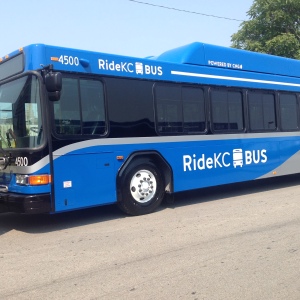 Transit Stakeholder Forums are few and far between so be sure to attend this one. Bring your ideas for additional projects to submit for federal funding through MARC.
Transit Stakeholder Forums are few and far between so be sure to attend this one. Bring your ideas for additional projects to submit for federal funding through MARC.
